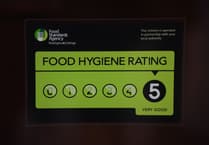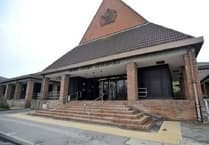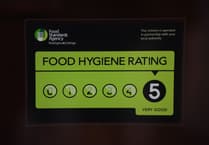THE CHIEF executive of the ambulance service which covers Surrey has said their latest staff survey makes “really, really hard reading” as only a third said the organisation is a good place to work.
Results out this week reveal staff satisfaction in South East Coast Ambulance Service (SECAmb) has plummeted, with nearly 42 per cent not agreeing they would be happy with the standard of care provided by SECAmb if someone in their family needed treatment.
About 86 per cent did not agree there was enough staff for them to do their job properly.
And as for how many would recommend working for the organisation – that was only a little over a third of participants.
Chief Executive Philip Astle said he “completely agreed” it was a really worrying issue at SECAmb’s NHS Foundation Trust board meeting yesterday (March 31), saying it was no comfort that “everyone else has suffered huge falls as well”.
“You don’t change things like that in the six months before the next staff survey. It’s got to be the work of time, but really disappointing with it dropping so far.
“To get a number like that really shows that we’ve got to attack it at all levels, workforce wide and on top of that local initiatives.
“We need to react to it in a way that has real bite.”
Only 36.4 per cent said they would recommend SECAmb as a place to work, down from 51.2 per cent the year before.
It was however an improvement on the 27.4 per cent in 2017 – when the South East service gave the worst response in the country.
This time, responses from the UK’s 11 ambulance trusts ranged from 28.5 to 51.1 per cent.
The 2021 NHS staff survey took place between September and November and was completed by 61 per cent of SECAmb staff.
Asked if they would be happy with the standard of care provided by SECAmb, if a friend or relative needed treatment, 58.1 per cent said they would be, which compared with a national average of 63.5 per cent.
It is the lowest endorsement of the last five years, both locally and nationally.
The average score for staff morale was 4.9 out of a possible 0-10, slightly lower than the national average of 5.3 but 5.5 was the highest from all trusts. This is the lowest score of the last four years. It was even higher in the 2020 survey carried out between the first and second waves of Covid, when it was 5.6 for the South East.
Thirty-eight per cent of respondents did not agree that their immediate manager cared about their concerns and 70.3 per cent did not think if they spoke up about something that concerned them, they’d have confidence SECAmb would address their concern.
Most (79.3 per cent) said they felt their role makes a difference to patients, but only 55.3 per cent said they thought care of patients was SECAmb’s top priority.
Nearly half – 45.4 per cent – said they were working additional unpaid hours, which was typical of, although marginally higher than, elsewhere in the country.
A mere 13.8 per cent agreed there was enough staff for them to do their job properly.
In the last three months, 67.8 per cent had gone to work despite not feeling well enough to perform their duties, and 62.3 per cent had felt unwell as a result of work-related stress in the last year.
Emma Williams, executive director of operations, said in yesterday’s board meeting that around 40 per cent staff are currently not in their frontline call-answering or patient-facing roles.
This is because of for example sickness, self-isolation and carry-over of leave due to the pandemic. Mr Astle said they still have around 300 staff off with Covid-19.
In the last year, 30.3 per cent of respondents had experienced physical violence at work from either patients or their relatives or other members of the public.
A national Work Without Fear campaign was launched in February this year, to support staff to take legal action because of the growing number of staff reporting being abused or attacked.
SECAmb is trialling body worn cameras in six locations across the region. Mr Astle applauded this work but said they had to do more.
After the board meeting he said: “It has been a difficult period for the whole of the NHS but we recognise that there are many areas where we must do more to improve the workplace for our staff. We will use these latest results to review our existing work and ensure the survey helps re-focus our efforts where needed most.
“We will also continue to work to ensure that the good work that we know goes on in many areas is shared so that so that any variation across our region is reduced.
“I would like to thank each and every member of staff for their hard work throughout what has been another extremely challenging year for the trust. I am extremely proud of the commitment and dedication shown by staff to care for our patients.”





Comments
This article has no comments yet. Be the first to leave a comment.